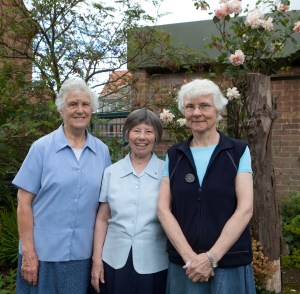Nuns of Hull
‘Nuns of Hull’ A project by Dr. Lee Karen Stow, was inspired by the work of Sister Anna and Sister Josie of St Stephen’s Church on Greatfield Estate in East Hull. The project is about the stories and memories from women, who were instrumental in establishing many of the educational and welfare infrastructures that we see in Hull today, as well as contributing to key parts of the development in the city.
Although the popular term ‘nun’ is widely used to refer to women who have professed the vows of poverty, chastity, and obedience, within Roman Catholicism there is a difference between a ’nun’ and a ‘sister’. Generally, a ‘nun’ lives a contemplative life in a cloistered (or enclosed) environment, whereas a ‘sister’ lives, ministers, and prays out in the world. They also take slightly different vows. The more correct term therefore is ‘women religious’.
Little is known about Hull’s 160-year history of female pioneers of education and women who dedicated their lives to an active vocation of prayer and service to others, beginning with the arrival in Hull of five Irish Sisters of Mercy in 1857. Today, as the number of nuns dwindles, and before memories are lost to time, here are a few voices and faces of Hull’s women religious.
There have been three orders based in Hull; The Sisters of Mercy, The Congregation of Jesus and The Daughters of Charity.
Sisters of Mercy, Endsleigh/St. Catherine’s
The Sisters of Mercy was founded in Dublin in 1831 by Catherine McAuley. Using a large inheritance, she built a House of Mercy, where like-minded women could volunteer to carry out ‘works of mercy’ such as nursing the sick and the dying during the cholera epidemic
In January 1857 five Irish Roman Catholic sisters, joined by a postulant and a novice, from the religious institute of Catholic women known as the Sisters of Mercy arrived in Hull. Until this time, no religious order of women had settled in Hull and there had never been a convent..
The Sisters were instrumental in founding the Catholic education infrastructure of Hull, including the teacher training college, St Mary’s School and The Marist School. They were also involved in founding of Dove House Hospice and took part in delivering education at HMP Hull when it was a high security prison.
Congregation of Jesus, St. Stephen’s Greatfield
Mary Ward was born in Mulwith, North Yorkshire in 1585. A Catholic girl she lived during a dangerous time in England, of persecution of Catholics and civil war.
Her calling was to become a nun, founding her own religious congregation of women. Mary was a woman ahead of her time, but what she proposed was unheard of in the Catholic church. Modelled on the Society of Jesus, her order was even banned from using the name ‘Jesus’ and so became the Institute of the Blessed Virgin Mary (IBVM).
Mary’s order was not officially recognised until after her death and in 2004 the IBVM became the Congregation of Jesus, thus fulfilling Mary’s vision.
Based at St Stephen’s in Greatfield, The Congregation of Jesus were very environmentally aware and ahead of their time, establishing an eco-friendly garden and the installation of solar panels.
Daughters of Charity, St. Stephen’s Greatfield/St. Wilfrid’s Hessle Road

The Daughters of Charity of St Vincent de Paul were founded in France in 1633 by the priest Vincent De Paul and the widow Louise de Marillac. They belong to an international, Roman Catholic congregation of women who have given themselves to God in community for the service of poor people and those in need.
The order arrived in Hull and founded the St Vincent’s Orphan Home for Boys in 1890, beginning in Wright Street and then Queens Road around 1910, and then closed around 1995.
The Daughters of Charity are women who have committed their lives to serving people who experience poverty of many kinds, reaching out to those who are vulnerable in today’s society. They like to collaborate with any organisation sharing the same hopes and desires.








